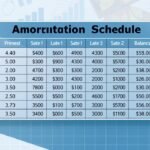Overview
When it comes to purchasing a home, one of the biggest decisions that homeowners face is choosing between a fixed-rate or variable-rate mortgage. Both options have their own set of advantages and disadvantages, and it’s important to carefully consider your financial situation and future plans before making a decision. In this comparative analysis, we will dive into the key differences between fixed-rate and variable-rate mortgages, and help you determine which option may be the best fit for you.
Fixed-Rate Mortgage
First, let’s define what a fixed-rate mortgage is. A fixed-rate mortgage is a type of mortgage where the interest rate remains the same throughout the entire term of the loan. This means that your monthly mortgage payments will also remain the same, providing you with a sense of stability and predictability. On the other hand, a variable-rate mortgage, also known as an adjustable-rate mortgage, is a type of mortgage where the interest rate can fluctuate over the course of the loan term. This means that your monthly mortgage payments can either increase or decrease, depending on the current market conditions.
Advantages
One of the biggest advantages of a fixed-rate mortgage is that it provides borrowers with a sense of security and stability. With a fixed interest rate, you know exactly how much you will be paying for your mortgage each month, making it easier to budget and plan for other expenses. This can be especially beneficial for first-time homebuyers or those who may be on a tight budget. Additionally, if interest rates rise in the future, you won’t be affected as your rate is locked in at the time of borrowing.
Lower Interest Rate
On the other hand, variable-rate mortgages typically start with a lower interest rate compared to fixed-rate mortgages. This can be attractive to borrowers, especially in a low-interest rate environment. However, it’s important to keep in mind that the interest rate can change over time, and therefore, your monthly mortgage payments can also increase. This can make budgeting more challenging, and if the interest rates rise significantly, it can put a strain on your finances. It’s crucial to carefully consider your financial situation and future plans before opting for a variable-rate mortgage.
Another key difference between fixed-rate and variable-rate mortgages is how they are affected by inflation. Inflation is the general increase in the prices of goods and services over time. With a fixed-rate mortgage, inflation does not impact your monthly mortgage payments as your interest rate is locked in. However, with a variable-rate mortgage, inflation can cause your monthly payments to increase as the interest rate can also increase. This is something to keep in mind, especially if you are planning to stay in your home for a longer period of time.
Prepayment Penalty
When it comes to paying off your mortgage early, a fixed-rate mortgage may be the better option. This is because fixed-rate mortgages typically come with prepayment penalties, which means you will be charged a fee if you pay off your mortgage before the end of the term. On the other hand, variable-rate mortgages usually do not come with prepayment penalties, allowing you to pay off your mortgage early without any additional fees. However, it’s important to note that some variable-rate mortgages may have a ‘cap’ on how much you can pay off each year without incurring a penalty.
In terms of which option may be more suitable for you, it ultimately depends on your individual financial situation and future plans. If you are risk-averse and prefer a stable and predictable monthly mortgage payment, then a fixed-rate mortgage may be the better option for you. However, if you are comfortable with some level of uncertainty and believe that interest rates may decrease in the future, then a variable-rate mortgage may be more appealing to you.
Conclusion
In conclusion, choosing between a fixed-rate and variable-rate mortgage is a personal decision that requires careful consideration. Both options have their own set of pros and cons, and it’s important to weigh them against your financial goals and plans. It’s also advisable to consult with a financial advisor or mortgage specialist to discuss your options and determine which mortgage type aligns with your needs and preferences. Remember, your mortgage is a long-term commitment, so it’s important to make an informed decision that will benefit you in the long run.






